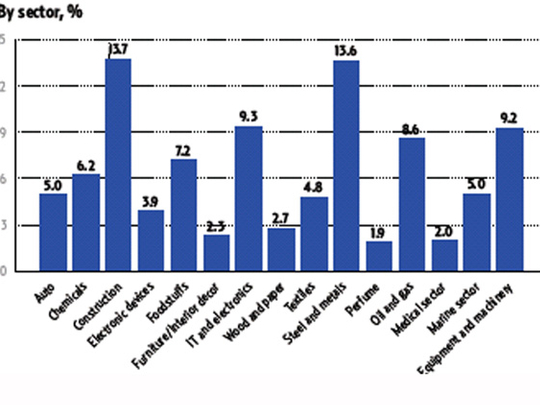
Sharjah: The Hamriyah Free Zone (HFZ) has seen an increase in the number of companies registering with it this year compared to 2009, according to HFZ figures obtained by Gulf News.
The total number of licences increased by 783 in 2009 to 4,202 this year at a time when many companies are closing as a result of the downturn, according to HFZ figures.
In both years, commercial licences exceeded services and industrial licences.
Active registered companies reached 3,785 in 2009 and increased to 3,943 as of this month.
"We had an aggressive marketing strategy and we penetrated new markets like Africa, increased our marketing budget, increased our networking, and focused on e-marketing" Rashid Al Leem, Director-General of HFZ, told Gulf News.
Africa is the "focus for the future," but the HFZ is also targeting Arab countries like Egypt, Syria, Libya and Algeria as well as European countries like Italy and Germany, he said.
The majority of companies registered at the HFZ, 12.6 per cent, came from the Middle East and North Africa. European companies followed closely with 12.3 per cent.
Most of them, 13.7 per cent, are construction companies and 13. 6 per cent are steel and iron companies.
However, the HFZ failed to reach its target of 4,800 registered companies by 2010.
Expectations
"Investors are very mature, they know the market they're in and they have certain expectations," he said.
The HFZ is trying to attract investors by improving the quality of their services, minimising waiting time, increasing working hours, and maintaining company set-up costs at the save levels as before the crisis, he said.
"Almost all our procedures are under one umbrella," said Al Leem, referring to environmental, health, licensing, medical certification, immigration and police procedures.
But the increase in company registrations is not necessarily a positive indicator for local free zones, said a Sharjah-based business consultant, who asked not to be named due to his regular dealing with free zones.
Most applications are from individual, small scale companies worth about $7,000 (Dh25,705), he said.
"There is an increase in the volume of companies in the free zones and most people are happy with that after the crisis. This year is a good time for free zones, but the quality of the client has gone down," he added.
This means it is easy for individual entrepreneurs to set up companies and then close them in a year or two if they fail as opposed to large corporations who study the market and improve their management.
"The question is not how many companies opened, but how many renewed their licences or closed down in the past year," he said.












